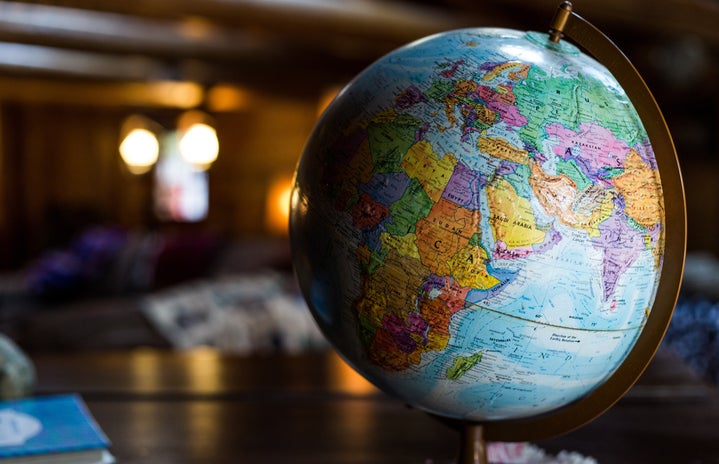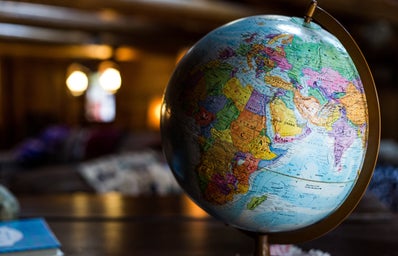What comes to mind when you think of the word “exotic”? A foreign dish at an Arabic restaurant? A paradise beach in Thailand? A beautiful Chinese woman? Or even some Nigerian music? Well, just as beauty is in the eye of the beholder, so is the idea of the exotic.
All of the examples above have one thing in common: they all relate to some ethnic minority. Everywhere, cultures and their manifestations are often described as exotic to mean different and uncommon. It doesn’t matter if it’s in the form of food, music, clothing, dancing, or even beauty standards, “exotic” is applied to it all. However, people don’t realize the deeper impact that this word has on ethnic minorities.
The word itself
“Exotic” comes from the Greek word “Exotikós” to mean foreign, so the term “exotic” in itself does not carry any derogatory connotation. The issue emerges with the underlying meaning of the concept.
First of all, characterizing something as exotic establishes that there’s a pattern to be followed. It draws a line that separates what would be considered “normal and acceptable” from something seen as “weird and undesirable”. The way in which the word “exotic” is used to describe cultures has more to do with putting them in a place of strangeness and repulsiveness than just saying that they are different.
In other words, when related to some kind of cultural expression, “exotic” takes on the meaning of the likes of “strange”, “bizarre” and “freakish”, rather than keeping its original sense.
It’s this very subtle, but crucial distinction that needs to be made. The primary idea of the exotic as simply foreign is expected to appear in a world of constantly clashing cultures. On the other hand, the use of this concept to define ethnic minorities and their ways of living is not only harmful, but also considered a microaggression by some.
Not so black and white
As mentioned before, the mere employment of “exotic” automatically sets a standard that serves as a guide used by society to decide whether or not something is acceptable. But that raises a question: who defines that standard?
There are many different ways to answer that question, but the simplest one would be: anyone. The concept of the “exotic” is highly relative, depending on someone’s life experience and cultural history. So, what is considered exotic by a person could be deemed completely normal by another and vice versa.
Here goes a little example for my fellow Brazilians out there. Some of our most popular dishes like moqueca and the nationally beloved feijoada might spark curiosity and even be labeled as “exotic” by other cultures. Once again, surprise generated by culture shock is expected in a globalized world, with extremely different cultures getting in touch all the time. But that’s not where the true issue lies.
And that’s where the more complex answer to the “who sets the standard?” question comes into play. There’s a reason for the majority, if not all, of the cultures considered “exotic” belonging to ethnic minorities.
It’s something historical above all else. Throughout the centuries, the dominant cultures had the power to classify different ways of living as “acceptable” or not, setting the pattern that most of western society has followed until now. While very few elements of the cultures deemed “unacceptable” managed to survive and make their way into our lives, most of them were simply rejected. That explains why the lifestyles adopted by the majority of the western world generally follow in the footsteps of European cultures.
But it’s also a matter of representativity and familiarity. While the dominant culture is exhaustively portrayed in the western media, smaller ones almost never make an appearance, only to be depicted along the lines of stereotypes on the rare occasion they do make an appearance. As a result, the public maintains a very limited view of those cultures, helping to perpetuate the idea of the “exotic” to describe ethnic minorities.
The consequences
Given all that, it’s not hard to deduce some of the impacts that the heavy use of “exotic” has on the targeted cultures.
The most prominent one is the reinforcement of racist and xenophobic ideas. The harsh separation of the “usual” from the “unusual” helps to strengthen the idea that there’s a “right” and a “wrong” way of living life. Not only that, it also places the ones using the term “exotic” in a place of power to judge and attribute values to other cultures.
Now, something that rests a bit further from the surface is the direct impact that the word has on the ones being labeled by it.It’s a sense of not belonging, of being undesirable everywhere they go. Since their lifestyle is often called out and described as “foreign”, the feeling that lingers in their minds is of not being a part of the society they, most often then not, were born in.
Furthermore, they are also stripped of any humanity they carry. Due to the fact that they are only seen as a byproduct of their cultures, whatever room they have to express themselves freely is taken away. And that place is filled with how society expects them to behave based on the prejudiced notion it has of that person’s culture.
What to do?
For as cliché as it sounds, the best solution possible is to simply accept that the world is brimming with the most contrasting cultures. By doing that it’s a lot easier to see how a certain cultural element that seems “exotic” to you fits in perfectly with another person’s lifestyle.
So, this word should keep its original meaning as “foreign” and not be used to alienate or treat other cultures as inferior. At the end of the day, what’s really necessary is to treat this concept as it is: highly relative. And ask yourself questions such as: “That’s exotic to whom?” or “Who decided that´s exotic?”.
And, hey, you might even find yourself enjoying other cultures in a more meaningful way. Given the fact that facing another culture as a part of someone else’s life helps to create a much more immersive experience.
The article above was edited by Camila Lutfi.
Liked this type of content? Check Her Campus Cásper Líbero for more!


